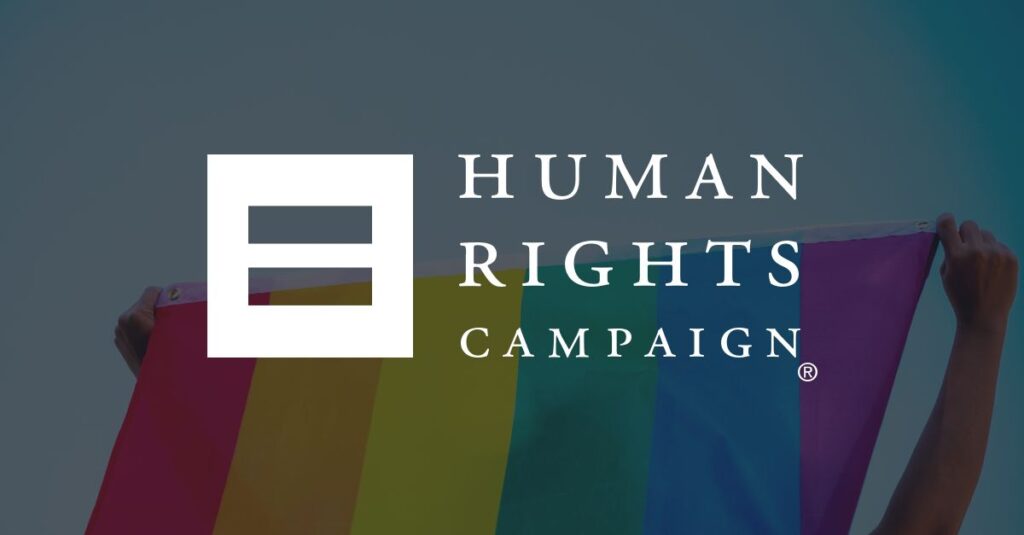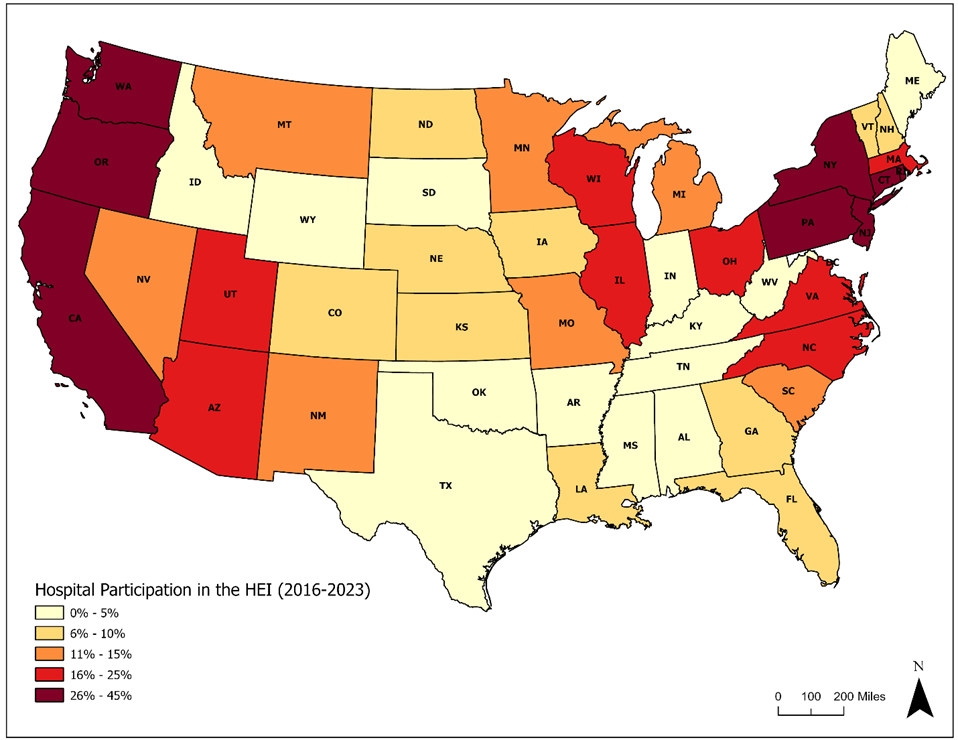Human Rights Campaign Foundation: Measuring the Impact of LGBTQ+ Inclusive Policies in Hospitals
Ensuring inclusive healthcare environments for LGBTQ+ patients is a crucial step in addressing healthcare disparities and improving patient outcomes. The Human Rights Campaign Foundation (HRCF), through its Healthcare Equality Index (HEI), evaluates and scores the inclusivity of healthcare institutions in the U.S. based on their policies and practices. Recognizing the opportunity to examine how HEI scores correlate with hospital outcomes, Eidos partnered with the HRCF, with Dr. David (Hyunmin) Yu leading an analysis that explored the impact of LGBTQ+ inclusivity on hospital performance. These studies provided policy recommendations aimed at strengthening inclusive care for LGBTQ+ patients and employees nationwide.

The Challenge
LGBTQ+ individuals face persistent discrimination in healthcare settings, leading to healthcare avoidance, poorer health outcomes, and decreased trust in medical institutions. Studies indicate that 24% of LGBTQ+ adults report experiencing discrimination during healthcare visits, contributing to gaps in care.
The Healthcare Equality Index (HEI) was developed by the HRCF to address these disparities by evaluating hospitals on factors such as LGBTQ+ non-discrimination policies, employee benefits, inclusive patient services, and community engagement. However, a deeper understanding of how HEI scores correlate with hospital outcomes—including patient satisfaction, employee well-being, quality of care, and organizational accreditation programs such as Magnet hospital designation—was needed to inform healthcare leaders and policymakers.
The Client
The Human Rights Campaign (HRCF) is the educational and research arm of the Human Rights Campaign (HRC), a national organization committed to advancing LGBTQ+ equality through research, advocacy, and community engagement. The HEI program serves as a benchmarking tool for hospitals, assessing their commitment to LGBTQ+ inclusion through policies and patient care practices.
The Work
Eidos worked with postdoctoral fellow Dr. David (Hyunmin) Yu to conduct a comprehensive analysis to asses the relationship between HEI scores and hospital outcomes across the U.S. Key components of the study included:
- Examining HEI Score Variability: Assessing differences in HEI scores across Magnet vs. non-Magnet hospitals.
- Analyzing Patient Outcomes: Exploring whether consistent HEI participation and higher HEI scores were associated with higher hospital ratings and increased patient willingness to recommend hospitals.
- Investigating Employee Outcomes: Evaluating whether higher HEI scores were associated with nurse burnout, job dissatisfaction, nurse-reported quality of care, and nurses’ willingness to recommend their hospital to their family and friends.
- Policy and Institutional Recommendations: Identifying strategies for hospitals to improve LGBTQ+ inclusivity and policy adoption.

The Results
Eidos’ research provided poignant insights and informed recommendations, including:
- Magnet Hospitals Lead in LGBTQ+ Inclusivity: Hospitals with Magnet status had significantly higher HEI scores compared to those without the status, demonstrating that excellence in nursing practices correlates with LGBTQ+ inclusivity.
- LGBTQ+ Inclusion Improves Patient Satisfaction: Compared to hospitals that did not participate, hospitals that participated in the HEI program received higher patient ratings and demonstrated greater willingness among patients to recommend the hospital. Among participating hospitals, those with higher HEI scores were also associated with higher patient ratings and an increased likelihood of patient recommendations.
- State-Level Policy Matters: Hospitals located in states with more LGBTQ+ restrictive laws tended to face greater challenges in implementing inclusion efforts for LGBTQ+ patients and employees.
- Actionable Recommendations for Hospitals: These studies provided clear policy recommendations for hospitals seeking to improve employee and patient outcomes by enhancing HEI participation and performance through inclusive care training, expanded patient services, revised internal policies, and increased LGBTQ+ community engagement.
The Impact
The HRCF and Eidos partnership demonstrates how data-driven research can inform policy and institutional practices to advance LGBTQ+ healthcare equity. These findings serve as a roadmap for healthcare institutions to enhance LGBTQ+ inclusivity, improve patient and employee experiences, and implement best practices for delivering culturally responsive care.
For more details, explore Eidos’ research on LGBTQ+ health equity and the Human Rights Campaign Foundation’s HEI program.
Published Papers:
- The relationship between a hospital’s Magnet status and LGBTQ+ inclusivity in policies and practices in U.S. hospitals. Research in Nursing & Health.
- Nurse leaders’ recommendations for implementing LGBTQ+ inclusive practices in health systems: A qualitative descriptive study. International Journal of Nursing Studies Advances.
- The impact of hospitals’ LGBTQ+ inclusion efforts on patient satisfaction from 2016 to 2023. BMJ Quality & Safety.
LGBTQ+ inclusive policies, nurse job outcomes, and quality of care in hospitals. JAMA Network Open.